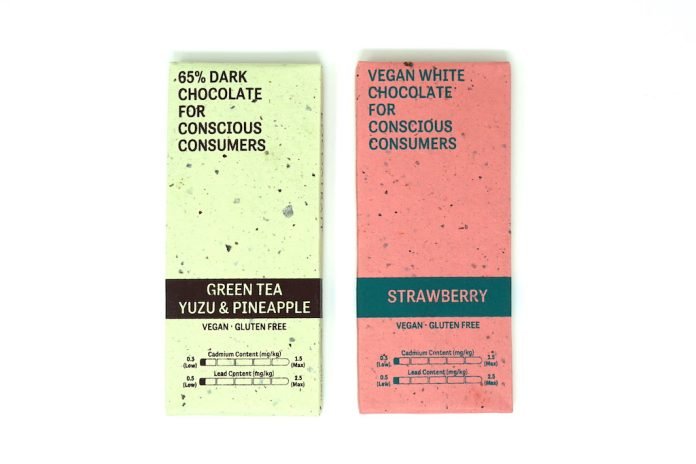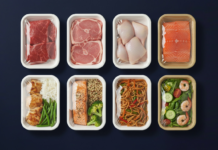Kocoatrait, a zero-waste, sustainable chocolate brand, has announced the inclusion of heavy metal content information on the front of its packaging and individual product pages on its website.
With the launch of two new variants —Green Tea, Yuzu & Pineapple, and White Vegan Strawberry—Kocoatrait is testing its products based on the FSSAI-prescribed maximum limits for metal contaminants and taking an important step in empowering consumers to make healthier, more informed chocolate choices.
As global concerns about health and environmental impact intensify, Kocoatrait says it continues to lead the charge in innovation, ensuring its products meet the highest standards of safety and sustainability.
The issue of heavy metals in food products, particularly in chocolate, has garnered significant attention. Consumers are increasingly concerned about the origins of raw materials and their potential health impacts. Recognizing this, Kocoatrait is not just adhering to stringent safety regulations but is going above and beyond by prominently displaying heavy metal content on its packaging—a rare practice in the food industry. Kocoatrait now publishes cadmium and levels in their new chocolate bars packaging.
L Nitin Chordia, founder of Kocoatrait, commented, “Our commitment to sustainability is more than just eco-friendly practices; it’s about equipping our consumers with the knowledge they need to make choices that resonate with their values and health priorities. By transparently sharing the heavy metal content in our chocolates, we are setting a new standard in consumer empowerment. We believe this is the future of responsible consumerism.”
Co-founded by India’s first certified chocolate tasters, L Nitin Chordia and Poonam Chordia, Kocoatrait is known for its zero-waste packaging, sustainable sourcing, and dedication to social and environmental responsibility.
IndiFoodBev — authentic, impactful and influential
An English-language food and beverage processing and packaging industry B2B platform in print and web, IndiFoodBev is in its third year of publication. It is said that the Indian food and beverage industries represent approximately US$ 900 billion in revenues which implies more than 20% of the country’s GDP. Eliminating the wastage on the farmside can help to deliver more protein to a higher number of the population apart from generating sizable exports. The savings in soil, seeds, water, fertilizer, energy and ultimately food and nutrition could be the most immense contribution that country is poised to make to the moderation of climate change.
To improve your marketing and grow sales to the food and beverage processing and packaging industry, talk to us. Our research and consulting company IppStar [www.ippstar.org] can assess your potential and addressable markets in light of the competition. We can discuss marketing, communication, and sales strategies for market entry and growth.
Suppliers and service providers with a strategy and budget for targeted marketing can discuss using our hybrid print, web, video, and social media channels to create brand recognition linked to market relevance. Our technical writers are ready to meet you and your customers for content.
The second largest producer of fruit and vegetables in the world is continuously expanding processing capacities and delivery systems with appropriate innovative technologies. We cover product and consumer trends, nutrition, processing, research, equipment and packaging from farm to thali. Get our 2025 media kit and recalibrate your role in this dynamic market. Enhance your visibility and relevance to existing markets and turn potential customers into conversations. Ask for a sample copy of our bi-monthly in print or our weekly IndiFoodBev eZine each Wednesday.
For editorial info@ippgroup.in — for advertisement ads1@ippgroup.in and for subscriptions subscription@ippgroup.in
Naresh Khanna – 10 February 2025
Subscribe Now











